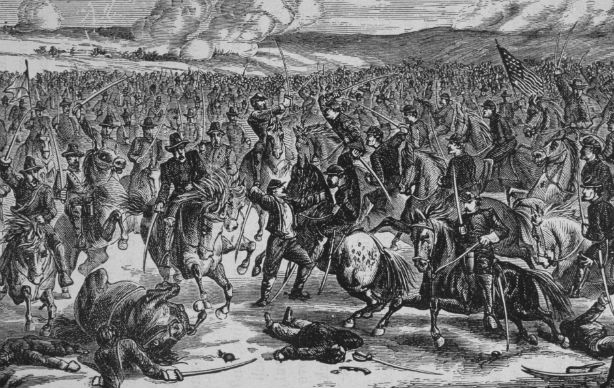A State Junior Base Ball Association has been formed, which appears likely to become a strong organization. The Convention at which the organization was effected was well attended, there being the following delegates from the following clubs:
Atlantic, Junior - T. Ryan, E. Mitchell.
Niagara - J. Long, J. Donovan.
Mutual - J. McMahon, B. Keise.
Union - W. Austin, E. Wolf.
Missouri - G. Walters, C. Thornburg.
Aetna - J. Blony, J. Loftus.
Empire - M.J. Virtue, M.J. Kinderick.
Dirego - E. Washburn, R. Avia.
Star - J. McCaffery, P. Reilly.
Stonewall - J. Reider, P. Clifford.
Mystic - A. Jones, H. Hecong.
Excelsior - P. Davis, P. Tucker.
An election of officers ensued with the following results:
President - James Ryan.
Vice Presidents - Jas. Donovan, Jas. McCaffery, George Walters.
Treasurer - E. Washburn.
Secretaries - M.J. Virtue, M.J. Kinefick and R. Greenhouse.
-Missouri Republican, August 27, 1868
|
I think this a great example of what I was talking about yesterday. There were a lot of clubs in St. Louis and a lot of games being played that weren't being covered in the press. The game was very healthy and rather popular in the city in 1868 and I think the formation of an association of junior clubs is proof of that.
0 Comments
A very interesting game of base ball was played Saturday afternoon, on Gamble Lawn, between the Commercial, Junior, and Empire, Junior, Ball Clubs, which resulted in favor of the former. I have mentioned in the past that Tom Oran, over the course of his career, played for pretty much everybody. However, I think I failed to mention the other day, when we saw the first reference to him playing with the Commercial Juniors, that he had played with the Empire Juniors in 1862. The guy had no problem with jumping from club to club. It's one of the reasons we love him.
Anyway, this is, I believe, the first reference we have to Adam Wirth. Wirth was the longtime first baseman for the Empire Club and a mainstay on their great post-war championship clubs. He was, in my opinion, the best St. Louis baseball player of his generation. The fact that he served as an umpire for this game is some kind of evidence that he was playing baseball in St. Louis in 1863. It's not particularly strong evidence but there was a tradition of players serving as an umpire for matches their club wasn't involved in. So I would argue that Wirth was playing baseball in St. Louis by the early 1860s and I know that he was still playing with the Empires in 1876. That's a rather long career for a pioneer-era player and I think it speaks to the level of his talent. Great players have longer careers. Wirth, in 1863, was about 16 or 17 years old and at the beginning of a great career. Also, on June 9, 1863, the Battle of Brandy Station was fought. Brandy Station was the largest cavalry battle ever fought in North America and you have to think that it's going to hold that distinction for some time. It's like Cy Young's 511 wins. Times change, nobody is going to win 512 big league games, and you're not going to have a cavalry battle that big again. |
Welcome to This Game Of Games, a website dedicated to telling the story of 19th century, St. Louis baseball.
Search TGOG
Categories
All
|



 RSS Feed
RSS Feed
